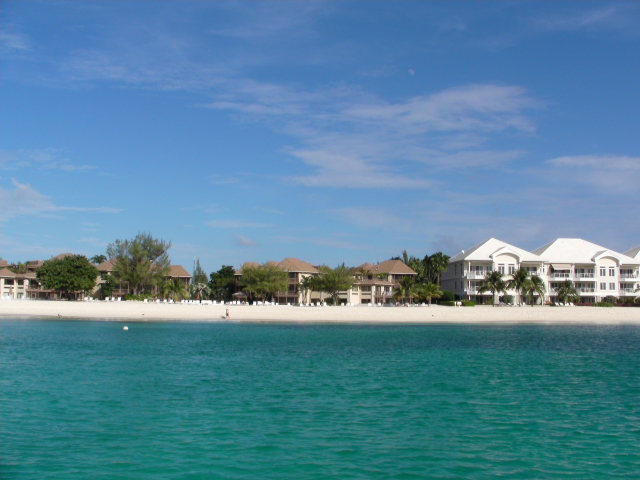Beaches are dynamic sedimentary landforms and in tropical seas this sediment is often produced by corals, algae and other organisms. The quantities of sediment generated within different habitats is not well studied and many complex physical and ecological processes influence how much sediment is produced and where it is eventually deposited. Beaches provide vital ecosystem services for human communities, including coastal protection and tourism, and are therefore culturally and economically significant structures that require careful management.
On Grand Cayman, Seven Mile Beach is perhaps the island’s most recognised and important natural asset drawing millions of visitors each year. However, beach erosion can occur during high wave energy events. Over time the natural beach nourishment regime resupplies sediment to the beach. Despite this, expensive artificial beach nourishment projects may be employed to renew eroded stretches of beach.
Additionally, human induced disturbance of the natural system (construction, pollution, global warming, ocean acidification, sea level rise) may be altering sediment production regimes and threaten the continued supply of ecosystem services.
This project will investigate the natural beach nourishment regime of Seven Mile Beach.
By examining sediment on the beach and production within adjacent marine habitats, we can develop an understanding of the contributions of different species to this natural system.
Project Partners |
|---|
|
Dr. Croy McCoy (Cayman Islands Department of Environment) Prof. Dr. Hildegard Westphal (ZMT) |





